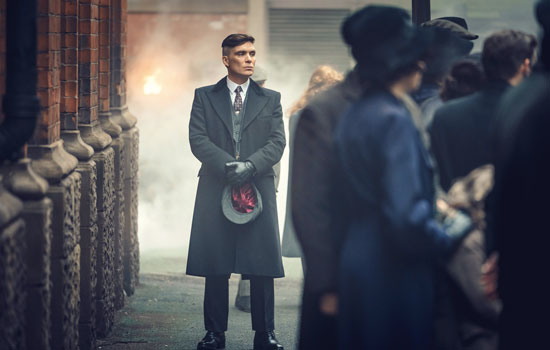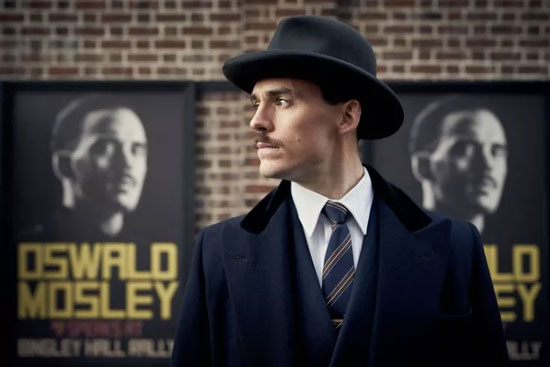Last Updated on October 12, 2019
Season five of “Peaky Blinders” picks up four years after the events of the season four finale, with Tommy Shelby (Cillian Murphy) serving as a Labor Party member of Parliament while simultaneously maintaining his family obligations and gangster ways.

To help keep this site running: Willow and Thatch may receive a commission when you click on any of the links on our site and make a purchase after doing so.
Set in 1929, the fifth season of the BBC period drama also integrates the early disenchantment and struggles associated with the Great Depression into story-lines full of intrigue, drama, and – in true “Peaky Blinders” fashion – crime and violence.
Below, we look at the historical context that shapes the latest season.
When you are done here, you may want to watch the documentary “Peaky Blinders the True Story” which explores the real events behind many of the narratives in the TV series, the identity of the crime family that inspired the Shelbys, and the film locations where the world of the Peaky Blinders was recreated. (Watch NOW / TRAILER)
“Black Tuesday,” the first episode of season five of “Peaky Blinders,” attests to the economic context of the season. The show bounces back and forth between England and the United States, with Michael Gray (Finn Cole) dousing his financial woes in alcohol and drugs. The Stock Market Crash that took place on Tuesday, October 29, 1929, was the culmination of days of instability on the New York Stock Exchange, following a decade of over-spending, buying on margin, and unregulated economic expansion.
Alongside Stock Exchange woes, farmers were losing their livelihoods as a result of agricultural surpluses. International trade was on the decline, and a run on banks resulted in massive failures among financial institutions. As unemployment and underemployment rose around the world, the Great Depression took hold.

The Peaky Blinders endured the Great Depression but the factory-based economy of Birmingham experienced initial industrial decline. British manufacturers were far less affected than their counterparts in the United States, however, and because the Peaky Blinders – given the nature of their business – used cash, their liquidity would have been been relatively unchecked.
Tommy finds himself at odds with fellow member of Parliament Oswald Mosley, a representative from nearby Smethwick. Mosley changed political parties numerous times during his political career, ultimately heading the British Union of Fascists in 1932. Tommy buddies up to Mosley, to keep his enemy close and inform on his seditious activities to the Crown, and even takes steps towards eliminating his rival.

As if Mosley wasn’t enough of a problem for the Blinders, the introduction of a new gang – the Billy Boys. Based in Glasgow, the Billy Boys were later hired by Oswald Mosley to work as bodyguards for the British fascist cause. What the Peaky Blinders see first-hand is a growing disillusionment with the political status quo in the midst of the Great Depression, movements that reached an apex with Adolf Hitler and Benito Mussolini.
To protect capitalism in the midst of subversive ideologies and actions, the Economic League took shape in England as early as 1919. Founded by Sir Reginald Hall, a conservative member of Parliament, the Economic League was also known as Second D and the Vigilance Committee, described as, “the odd fellows… you can never quite grasp who they are – it’s like gripping wet soap.” The Economic League was made up of industrial magnates, former members of Parliament, bankers, and media heads like Lord Gainford, chairman of the British Broadcasting Company.
The Economic League, previously a factor in season three of “Peaky Blinders,” protected Father John Hughes (Paddy Considine), but in season five of the British period drama, the group looms in the background as an ever-present threat.
As the body count goes up, viewers are left wondering of the Economic League is trying to eliminate Tommy Shelby as a member of Parliament, a government informant, or the head of the Peaky Blinders.
Peaky Blinders is streaming on Netflix. The first two seasons are also AVAILABLE to STREAM HERE.
Starring Cillian Murphy, Paul Anderson, Helen McCrory, Sophie Rundle, Ned Dennehy, Finn Cole.
Rated TV-MA for violence, profanity, sexual situations.
Melissa Sartore enjoys exploring all things history and has a passion for understanding its pervasive intersection with popular culture. In addition to holding a PhD in Medieval History, Melissa has written for several websites including Ranker.com where she recently wrote about the depiction of historical events throughout the previous seasons of “Peaky Blinders.” She currently offers her own take on history through a sarcastic lens over at History According to Snark. When she’s not thinking about history or watching TV and movies, Melissa enjoys spending time with her dogs, eating mustard on everything, and playing with yarn.
Be sure to see The Period Films List, with the best British, historical and costume dramas sorted by era. You’ll also want to know about the new BBC period drama Vienna Blood and Dead Still.


Sarah Cords
October 24, 2019 at 4:32 pm (5 years ago)Wow, great post, thanks. I enjoy the extra context for what I already consider a great TV show (with a fabulous cast).
lesley Holland
October 14, 2019 at 9:52 pm (6 years ago)looking forward to getting the news letter